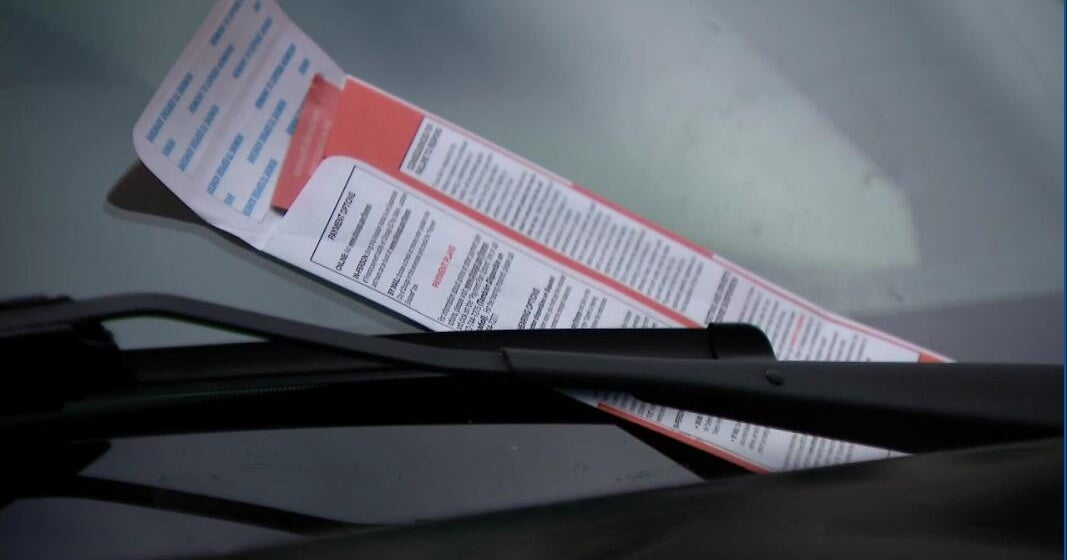Disability marker introduced in Colorado could go worldwide
Colorado now has an optional marker available on drivers' licenses and state IDs that can show a person has a disability; a victory, say people who work with people with so-called, "invisible disabilities."
"This opens the door for, what I would call, 'conversations' to begin. Also, ways to get out of tense situations," said Jess Stainbrook, executive director of the Invisible Disabilities Association.
Stainbrook says about a quarter of the state's population has some type of disability and about 75% of those have an invisible disability. Enough, says Stainbrook, to fill Empower Field at Mile High 15 times.
The new markers became available in July after a new law in Colorado. There is no requirement due to worries about discrimination, so they are optional. There is a requirement for medical validation to get one.
"You now have a symbol on your license that says 'hey, there's something different about me, and can we step back a little bit so that we can deal with it?'" said Stainbrook. "Hopefully the question out of law enforcement will be, 'How can I help accommodate this situation?'"
The law follows high-profile incidents that have involved people who have had difficulty in interactions with law enforcement officers.
The death of Elijah McClain, after an interaction with Aurora police and paramedics, was one. The injury by police in Loveland to Karen Garner, a woman who had a type of dementia, was another.
"People can't tell, people don't know. And yet, something's wrong," said Stainbrook. "Bad things ... have happened when those situations have gone wrong."
"Absolutely, yes," said Rebecca Zickerman, about the idea of getting the marker on her license. She was involved in the push for it. A successful college student on a pre-med track, she gets through every day with a mild diagnosis of cerebral palsy.
"It's mainly invisible. However, it does affect me on a daily basis," she explained. "I might not be able to walk in a straight line, or walk for a long period of time without feeling tired."
When she was younger, it affected her at school more.
"I just wasn't able to do what my peers were doing," she said. "We had something in middle school called a 'timed mile,' where we would have to run a mile and have it timed, and I just wasn't able to do it."
She has wondered what might happen if a law officer didn't believe her. "If I were to be pulled over by law enforcement for being potentially wrongfully assumed of being under the influence and they had me walk in a straight line, I likely would not be able to do that, nor would I be able to balance correctly."
The marker does not designate what the disability is. But there can be a cross reference tied to a vehicle's license plate that tells an officer before even approaching a car that a person inside has a disability. That can include the driver, or even a passenger if, for example, a parent often drives a child with autism.
Law enforcement supported the move.
"I think the job of police officers and law enforcement is to help, and at the end of the day they don't want to be making wrong conclusions," said Zickerman.
No one else beyond law enforcement can access the information about a person's disability tied to the license plate. In addition, law enforcement is now required, under a 2022 law, to get training -- at the academy and yearly -- in dealing with people with disabilities. It has been well-received, says Stainbrook.
"Colorado is probably the first state to pass it at this much bigger level that has all kinds of options and makes it voluntary if you want it," Stainbrook pointed out.
After the law was passed, there were calls from other states. The organization trademarked the symbol and there has been attention worldwide, including calls from several countries about a national effort. Canada is looking at the idea of a marker available across the country.
"Our goal is to go back to them to say, 'hey make it the universal symbol for invisibilities and everybody across the board knows what we're talking about,'" Stainbrook said.
The Invisible Disabilities Association also produces an unofficial ID that can help people share information about their disabilities. There is more information on the association's website: https://invisibledisabilities.org/











